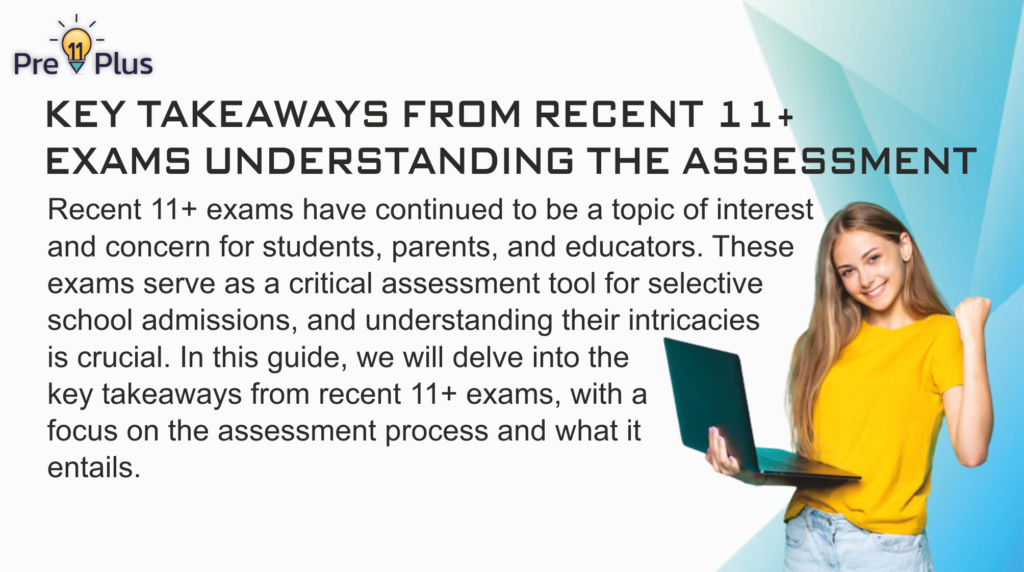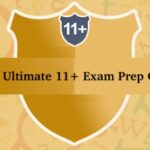Key Takeaways from Recent 11+ Exams: Understanding the Assessment
Recent 11+ exams have continued to be a topic of interest and concern for students, parents, and educators. These exams serve as a critical assessment tool for selective school admissions, and understanding their intricacies is crucial. In this guide, we will delve into the key takeaways from recent 11+ exams, with a focus on the assessment process and what it entails.
The Importance of 11+ Assessment:
The 11+ assessment serves as a gateway to selective schools, offering students the opportunity to access high-quality education and enriching experiences. The assessment evaluates students in subjects like Maths, English, Verbal Reasoning, and Non-Verbal Reasoning, aiming to identify their aptitude and potential for success in rigorous academic environments.
The Assessment Components:
-
Mathematics Assessment:
The Maths component of the 11+ exam assesses students’ mathematical proficiency, problem-solving skills, and ability to apply mathematical concepts. Recent exams have emphasized real-world applications and critical thinking.
-
English Assessment:
The English assessment evaluates students’ comprehension, grammar, vocabulary, and writing skills. Recent exams have focused on assessing students’ ability to analyze texts critically and construct well-structured essays.
-
Verbal Reasoning Assessment:
Verbal Reasoning assesses a student’s ability to understand, analyze, and manipulate written information. Recent exams have emphasized logical reasoning and the ability to draw conclusions from text.
-
Non-Verbal Reasoning Assessment:
Non-Verbal Reasoning evaluates a student’s spatial and abstract reasoning abilities. Recent exams have incorporated visual puzzles and patterns to assess cognitive skills.
Key Takeaways from Recent 11+ Exams:
-
Increased Emphasis on Critical Thinking:
Recent 11+ exams have placed a higher emphasis on critical thinking skills across all assessment components. Students are expected to not only recall facts but also analyze, interpret, and apply knowledge to novel situations.
-
Real-World Application:
Maths and English assessments have integrated real-world scenarios and practical problem-solving tasks. This shift encourages students to apply their knowledge to everyday situations, fostering a deeper understanding of the subjects.
-
Essay Writing and Analytical Skills:
The English assessment has emphasized essay writing and analytical skills. Students are required to construct well-structured essays, analyze texts, and present arguments coherently. Strong writing skills have become a valuable asset in recent exams.
-
Logical Reasoning in Verbal Assessment:
Verbal Reasoning assessments now focus on logical reasoning. Students are presented with complex text and are required to draw inferences, make deductions, and identify patterns within the information provided.
-
Visual Puzzles in Non-Verbal Assessment:
Non-Verbal Reasoning assessments have introduced visual puzzles and abstract patterns. These tasks challenge students’ spatial reasoning abilities and require them to think critically to solve complex visual problems.
Implications for Students and Educators:
Understanding the key takeaways from recent 11+ exams is crucial for both students and educators. For students, it means preparing not just for rote learning but also developing strong analytical and critical thinking skills. They should focus on real-world applications of knowledge and practice essay writing and logical reasoning.
Educators must adapt their teaching methods to align with the evolving nature of 11+ exams. They should emphasize problem-solving, critical analysis, and creative thinking in their teaching strategies. Additionally, educators should stay updated with the latest trends in assessment and adjust their curriculum accordingly to better prepare students for these exams.
The Role of Practice and Preparation:
-
Comprehensive Preparation :
Students preparing for the 11+ exams should engage in comprehensive and well-structured preparation. This includes a thorough review of subject matter, regular practice tests, and exposure to a variety of question formats.
-
Effective Time Management :
Time management is crucial during the exams. Students should practice allocating time appropriately for each section, ensuring that they have sufficient time to complete all questions.
-
Seeking Guidance :
Many students benefit from seeking guidance from experienced tutors or educators who can provide insights into the assessment process and offer targeted support in areas that require improvement.
-
Emphasizing a Growth Mindset :
Encouraging a growth mindset is essential. Students should understand that intelligence and abilities can be developed through effort and dedication, fostering resilience in the face of challenges.
Conclusion:
Recent 11+ exams have evolved to assess not only a student’s academic knowledge but also their ability to think critically, solve real-world problems, and apply their skills across various domains. Understanding these key takeaways is essential for students and educators alike, as it guides preparation strategies and teaching methods.
By focusing on critical thinking, real-world application, and strong analytical skills, students can excel in these assessments and be well-prepared for the challenges of selective school admissions. The evolving nature of 11+ exams reflects the changing demands of the modern educational landscape, where adaptability, creativity, and problem-solving skills are highly valued.
Preparing for these exams is not just about acing a test; it’s about equipping students with the skills they need to thrive in a complex and ever-changing world. Ultimately, the journey of 11+ exam preparation is an opportunity for growth, learning, and personal development that goes beyond the exam itself.












